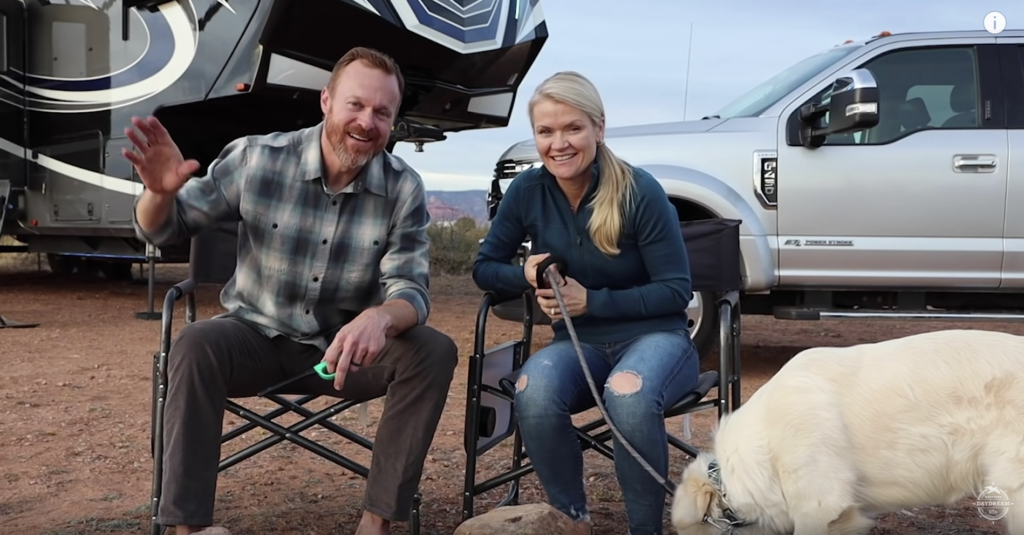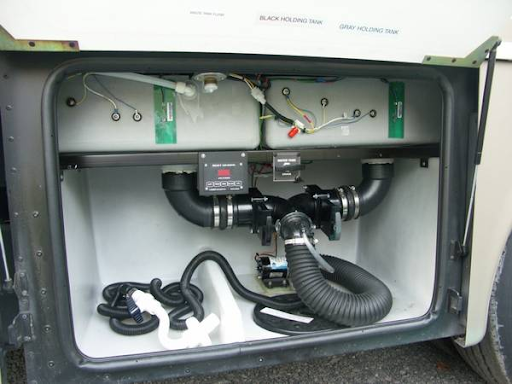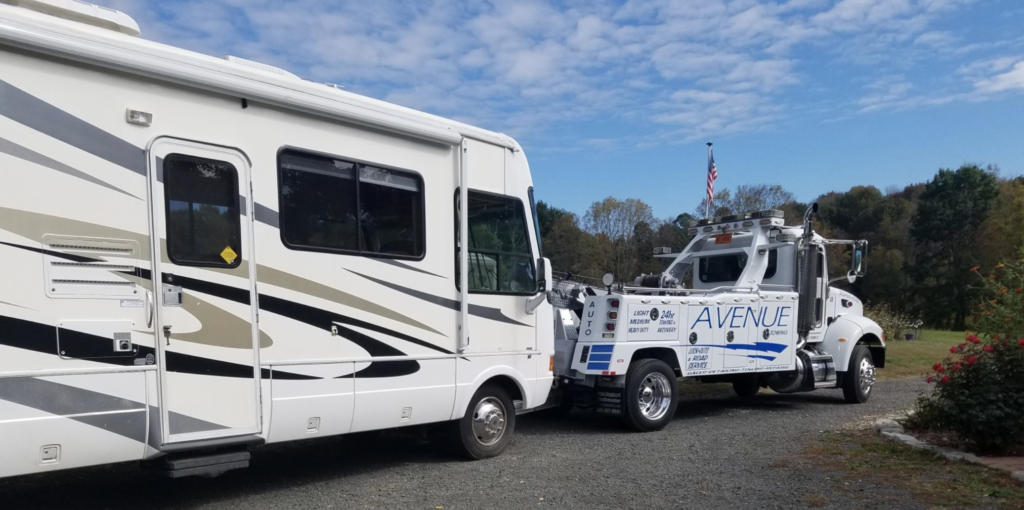As an RV owner, enthusiast, and industry member, I follow the RV world very closely. I do this through a variety of print magazines, digital magazines, email newsletters, forums, blogs, television, social media, and trade or industry shows. Making sense of the advice and tips for new RV owners can be daunting.
To say there is a ton of information out there would be a vast understatement. The RVing lifestyle is at the forefront of the American consciousness right now, as evidenced by this year’s early RV show attendance numbers. For a new RVer, this deluge of data can be quite overwhelming. Some of that overload is of our own doing.
In our quest to round up as much advice and tips as we can harvest, we sign-up for newsletters, and subscribe to YouTube channels. We also read blogs, join Facebook groups, and otherwise try and saturate ourselves with data through any source we can find. Here is a collection of tips and advice designed to help the novice RVer make sense of all that data.

New RV owners looking for tips and advice attend the Florida SuperShow in Tampa
New RV owners need good tips and advice
For those just entering into the RVing lifestyle, exercising discernment about the advice they find or receive can be difficult. Good advice is commensurate with the amount of effort it takes to give it. This can be seen in the case of social media. One of the quickest ways to give or receive advice is through social media platforms like Facebook, Instagram, and Pinterest.
Because these platforms are more “in the moment”, advice tends to be quick and shallow, often without anything to back it up. Such responses are usually interspersed with jokes and irrelevant comments, making it tougher to locate valid answers. Good advice can be dispensed on these platforms, but it takes a greater level of patience and determination to extract it.
As a newbie, you have the added burden of discerning the validity of that advice as well. Social media content tends to disappear quickly as fresh content continually replaces the data in your current feed. It can be difficult to locate an answer you saw even just the day before, let alone a week or two ago, depending on how active the group or page is.
Forums, videos, and blogs offer advice and tips for new RVers
You’ll usually find more reliable advice and tips for new RV owners in deeper context platforms such as forums, videos, and blogs. iRV2.com is easily the most popular RVing forum, with decades of experience and over ¼-million members.
The extra effort you take to learn to navigate a forum will yield greater results in the form of detailed answers that are backed by other RVers and can be located and referenced easily at any time.

Marc and Tricia Leach’s YouTube channel ‘Keep Your Daydream’ dispenses vast amounts of great advice and tips for new RV owners.
The popularity of YouTube has created an entirely new genre of informative and entertaining RVing videos and personalities. Well-known YouTubers have sought not only to hit the road and make a living while full-time RVing, they have found a way to take us along for the ride.
The majority of them share their trials and tribulations on camera and provide one of the best ways to learn about the RV lifestyle. They regularly dispense excellent advice and tips for new RV owners through their channels. Discerning the good from the bad is usually easier when peering directly into someone’s life through the camera lens.
Many good blogs still exist and are often the preferred format for those less inclined to spend time in front of a camera. Blogs can be reasonably easy to validate if backed by good photos and reference links, where applicable.
A new RV owner should use all of the tools at their disposal to make an informed decision, whether trying to discern the pros and cons of a particular RV or simply figuring out which grill to buy for their trips.
Try before you buy – Renting makes a savvy new RV owner
The recent rental market explosion has yielded new rental opportunities from the likes of RVShare and others. Additionally, there may be rental options offered by local RV dealers in your area. For a new RV owner, there should no longer be any excuse for buying the wrong type of RV, especially a brand new one where depreciation rates might be as much as 30% or more the first year. You can look at RVs all day long, but you may not learn which type of RV you need or which features matter to you and your family until you have rented a few times.
Many motorhome owners will tell you to buy your third RV first, realizing that by your 3rd RV you know exactly what you want and won’t suffer the aforementioned depreciation. That can be scary territory to navigate for folks buying their first RV. Here again, renting several times can provide the same kind of insight.

There are several RV types for the new RV owner to choose from
A great example would be the neophyte couple that knew they wanted a Class A motorhome. The wife had no desire to sit in a pickup truck all day, or sitting in the RV’s passenger seat. Instead, choosing to sit at either the couch or the dining table to relax and get some work done during the drive.
After a couple of years of renting and participating in the Gas vs Diesel debate, it came down to purchasing a diesel motorhome. The loud V-10 engine in the front of the gas motorhome prohibited conversation from the driver back to the living area. They never would have discovered this without renting a variety of RVs first.
Prospective new RV owners should shop ‘til you drop
Once you have a pretty good sense of what you are looking for in an RV, start shopping. Not only do you want to have a strong sense of the true value of what you are looking for, both for a new or used RV, but you can start to iron out some of the nuances of your selection.
In addition to Camping World, local RV dealers, and all the standard online sources, be sure and take in any RV shows that are within reasonable driving distance. Remember too that many RV dealers will have an in-house RV show with a bit of local fanfare and less sales pressure, affording a great opportunity to kick the tires on several RVs.
Here’s where you can decide on some of the less obvious but ultimately important features. Jack-knife sofa or fold-out? Outdoor kitchen or not? Booth dinette or table and chairs? Sliding storage trays or room for a kayak? You will typically find several floor plans in the type and model of RV you have decided on. Take your time and choose the one that fits your needs the best.
Remember to never be in a hurry or feel pressured to close a deal. There are plenty of RVs out there and plenty of dealerships. Decide ahead of time whether you will be a candidate for an extended warranty. Most RV dealerships will suggest them enthusiastically.
Warranties can also be purchased from outside sources if you end up purchasing an RV from a private seller and would like to have a little extra peace of mind. Extended warranties can be as high as 5% of the total cost of your RV. Having a plan means you won’t get caught off guard and can make an informed decision.
Understand the cost as a new RV owner
It’s important to understand the total cost of your RVing experience. Make sure you understand the monthly cost of your RV payment, the cost of the frequent maintenance it will require, and trip costs such as fuel and campground fees.
We’ve often heard that RVing is cheaper than a similar vacation utilizing fights, hotels, rental cars, and meals. While that may be true for a short vacation, the monthly RV and insurance payments occur every month, all year long. Some insurance companies will let you pay only for the months used, but your banknote for the RV will still occur every month. You’ll still be paying during those cold months when you aren’t using your RV and it’s sitting in your driveway or a storage facility that you are also paying for.

Covered storage for your RV during the off-season is a nice luxury
RV loans tend to be in the 10, 15, & 20-year variety. Make sure you can afford the proposed monthly payment before you commit. While you can always sell the RV if times get tight, bear in mind this is where depreciation rears its ugly head. You’ll potentially be upside down if you change your mind in the first few years.
Unless you are a boondocking pro, which most new RVers are not, you’ll have to contend with campground fees that are escalating due to recent demand. Nightly campground costs can easily run from $25 to $125 per night. The more elaborate the campground and the amenities offered, the higher the cost. You can save some money on camping costs by utilizing clubs, such as Thousand Trails, to reduce those campground fees.
Fuel cost expectations
You need to also understand your potential fuel costs. At worst, with your motorhome, large travel trailer, or 5th wheel you’ll get 7-mpg. At best, perhaps 10-mpg depending on your vehicle.
Obviously, the smaller the truck and trailer and the more efficient the engine the truck or motorhome has, the better those numbers will be. Even at a generous 9-mpg, a trip from Chicago to Yellowstone and back could cost as much as $1000 in fuel alone.
Keep notes while gathering tips and advice
With such a plethora of resources available, keeping track of it all can be difficult. As a new RV owner, you will be exposed to a wealth of tips and advice. Often, you’ll see an important bit of information that you sense is important, but it’s not currently relevant or you simply don’t understand it enough to know its importance. One trick is to utilize a cloud storage device, such as Google Keep, OneDrive (part of Office 365), or DropBox. You can usually access these with any of your computers or devices.
When you run across a video, website, forum thread, or some other pertinent note that you feel might be valuable, simply save that link to a folder on your cloud drive. Most of the data you save will be links to those other resources. You can also have a catch-all document that you can paste in snippets and tidbits you might see on forums or social media that aren’t direct links.

New RV owners asking advice about tire pressure will want to weigh a new RV
Here too is a great place to keep any campground or tourism information you have collected. You can also keep technical data such as results for any truck scales you have visited to weigh your rig, tire pressure notes, and a list of manufacturer’s phone numbers.
It’s also a great location for emergency procedures and checklists for breaking down camp. The goal is to have a single place to go to when you have an RVing question or emergency.
New RV owners should manage expectations
RVing is more of a lifestyle than a vacation and can be a lot of work. That work is often rewarding in ways you just can’t experience in other vacation scenarios, but it’s work nonetheless. You can’t just hop into the RV and throw your suitcases on the bed and wait for room service.
The RV must be prepared and packed. The route must be planned, campground reservations made, and at least a modicum of groceries stocked. You’ll need to plan for those fuel stops ahead of time as well, you can’t just take your 40-foot motorhome through the nearest 7-Eleven for fuel.
New RVers will learn about unique components
As a new RV owner, you will want to make sure you learn how to operate all the special components your RV is equipped with. Much of the equipment is not native to most homeowners and will require some initial training. You’ll need to understand things like filling up the fresh water tank, dumping black and gray tanks, running a generator, and hooking up electricity to your rig.

A typical wet-bay arrangement for dumping tanks will be high on the new RV owner’s list of things to learn
You will need to carefully manage your travel time and arrival expectations. You should reduce your expectation to driving no more than five or six hours per day. You’ll discover that you need time to pull into the campground or RV park and get everything set up before you can have that idyllic glass of wine in front of the sunset or campfire. That’s assuming you arrived before the campground office closed, traffic wasn’t too bad, and it isn’t pouring rain. You must set your expectations accordingly.
Advice and tips for traveling with children and pets
One important piece of advice that a new RV owner should remember is that with children and pets, everything takes longer. You can count on more frequent stops, which will cut into your driving time and must be accounted for. For kids, motorhome owners have it made, in that they can attend to the kid’s snack, entertainment, and potty needs right inside the rig, stopping only as needed by the driver. The travel trailer and 5th wheel folks typically require a full stop in a rest area for their breaks, in order to access the accommodations in their RV.
If traveling with pets, you’ll need to allot time to take care of their needs, including cleanup. You’ll want to plan ahead to try and coordinate planned breaks with rest areas and other facilities that are pet friendly. You’ll also need to review campground policies to ensure they allow pets and if there are any breed or quantity restrictions.

It is estimated that over 60% of RVers travel with their pets
Depending on the location and duration of your camping trip, you’ll want to familiarize yourself with local hospitals and veterinarians, just in case. This can easily be overlooked, however, when you plan all year for that one opportunity to see Yellowstone or Mt. Rushmore, you’ll want your bases covered. Knowing when or where facilities exist could sway your campground choice, or alter your driving day if needed. Knowing the location of these important places in advance is simply good preparation that you will hopefully not need.
Be prepared for the worst
Despite all of the advice and tips you have collected, things can still go wrong for the new RV owner. There is nothing you can do to prevent the unexpected. Your best bet is simply to prepare. With an RV, you are driving or pulling a living room and bath on wheels. Things will go wrong, given enough time or enough miles. Assuming nothing catastrophic happens to completely end your well-earned vacation time, here are a few things you can do to try and minimize any negative impact.
- Make sure your truck or toad (towed vehicle) both have plenty of fuel at all times.
- Ensure that tire pressure is checked frequently throughout the trip for all vehicles.
- Have a contingency plan, such as an app for finding alternative campgrounds, should the need arise to settle down in a hurry.
- Use an app or a weather radio to keep track of the weather in the areas you are traveling.
- Trust someone with a detailed account of your planned journey with phone numbers of each campground or location, as well as license plate numbers for your vehicle and/or RV or rental RV.
- Locate pertinent hospital and veterinary information as previously mentioned.
- Be sure your RV has a provision of water and food for at least a couple of days.
- Have adequate road emergency gear packed, such as flares, hazard triangles, flashlights, even rain ponchos.

Hopefully, the new RVer will never need the services of a tow truck
Enjoy the journey
RVing, more than any other form of vacation travel demands that you enjoy the journey as much as the final destination. A carefully planned RV trip, using a tool such as RV LIFE Trip Wizard, will include exciting or interesting campgrounds that are a part of the journey, not just a place to sleep.
For adults, enjoying the scenery that you may have previously flown over many times offers a respite from the mundane. For those with kids, the excitement of being in the RV is as much of a vacation as the destination itself. When RVing, you should make every attempt not to try and make “good time”, but rather plan carefully enough to make sure you have a good time.

Bet advice to any NewB who hasn’t purchased yet is Know what to tow and what to tow with! Many a new buyer has a truck or SUV already so think, Hey lets get an RV, the truck/SUV has a hitch. Off to the RV show or dealer lot and get glamping eyes looking at these trailers with all the features, slides, fancy outdoor kitchen etc. and are told Sure your truck can tow it, only to find out that no, your truck CAN’T tow it.
For Travel Trailers, follow the simple rule of 13. SAE J2807 measures towing with 10% tongue weight, so all trailer towing specifications are based on 10%. Travel trailers do not tow well with only 10% on the ball mainly due to the axle placements, and partially due to the big wind catchers that the sides become. Conventional towing has a range of 10-15% of the trailers weight on the ball, so when shopping, split the difference and use 13% in the equations. It gives a good starting point for everything.
Next step is to know what you have. So if one already has a truck, put the family in, Fill the gas tank, and drive to the nearest scale and get it’s weight. Now look for the specifications label, it is white and usually located on the drivers door pillar. It has 3 important ratings on it, never exceed these and you will be safe. Front Gross Axle Weight Rating(FGAWR), Rear Gross Axle Weight Rating(RGAWR) and Gross Vehicle Weight Rating(GVWR), the latter being the most important number. Now that you have the scale weight, subtract it from the GVWR on that sticker. This is your payload capacity available(provided of course nothing is loaded in the bed or cab afterwards when hitched up).
Now that you have this number, you can determine how much trailer you can tow. Subtract 100 pounds from this as an average weight for the Weight Distribution Hitch, it comes right off payload before the trailer is hooked up and an important number, so don’t overlook it.
If you don’t have a trailer in mind, divide the balance by .13. So lets say you have 1080 pounds available payload, minus the 100 for the hitch, true payload for use is 980. 980/.13=7538 and some change.
Now that you have this number, limit your shopping to trailers with a GVWR of 7600 pounds.
Now say you found a trailer, but don’t have a tow vehicle and plan to buy both. Take the GVWR of the trailer in question and multiply it by .13. 7600 * .13= 988. Add 100 for the hitch, and you need a minimum of 1088 pounds payload. You also need to add in all the peoples weight that will be in the TV. So lets say on average, 600 pounds of people and stuff. You need to find a TV with at least 1800 pounds of payload to be safe.
Hope this helps any new shoppers.
Todd,
Thanks for your explanation.
I’ve read quite a few different explanations determining weight capacities for towing and or hauling.
Yours has been the easiest-clearest straight one to yet.
Great advice on payload capacity of tow vehicle. We got lucky when we purchased our TT last year. We almost went for a larger trailer and I would have been on the edge for payload. Started reading forums and YouTube videos and learned a ton about towing and payload.
Looking at getting a bit larger trailer but will be moving from 1/2 ton o 3/4 ton truck before I make decision on new trailer.
Do not let the black water tank get dry or it will drive you out of the rv. Put at least a gallon of water and some sanitation solution each month if parked in the back yard and of coarse after each dump.
Make a check list (pre flight) to do before pulling out your camp site.
Be aware that if you get a 3/4 ton with a Diesel, you don’t get much more payload than in a 1/2 ton. If you want a Diesel, a 1 ton would be a better choice. An F250 Powerstroke only has about 2400 pounds payload, and an F150 HDPP has pretty much the same. If going for 3/4 ton, sticking to a gas engine will give the most payload.
My friend just bought an RV and he seems so stoked about all the things he has plans for it. I was curious about the type of lifestyle an RV owner would have, and so it was interesting to read that owning an RV involves a lot of pre-planning during trips. I’d imagine that along with pre-planning tips, owning an RV would have its own maintenance and storage standards that having a storage service would be crucial for.
I always tell people who are thinking of buying or are brand new to RV’s that the very first thing they should insist on when buying is to have a surge protector installed. At the very least, a surge protector you can connect yourself. Too many people think the Circuit Breakers will protect them and that’s not true.
i”m a newbie. . electrical questions: makes sense to me that the installed btty runs everything all the time. simply hooking up to external sources (solar, generator or “shore power”) just recharges the btty. is my logic correct? does the refrig, microwave, AC, exhaust fan run on 110 or are they 12V? ultimately, here’s where i’m going with this: if the btty is fully charged when i break camp, how much btty is left after 10 hrs on the road? is there enough to run the exhaust fan after a shower, use the microwave to heat leftovers? or do i need to think seriously about recharging the btty before I do anything else? reedr99@msn.com.